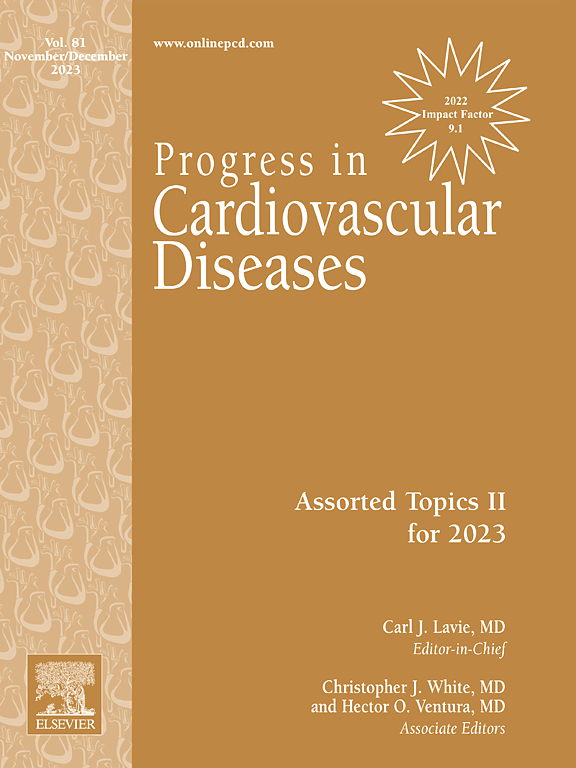Learning from the roundtable on obesity solutions experiences: A 10-year anniversary point of view
IF 7.6
2区 医学
Q1 CARDIAC & CARDIOVASCULAR SYSTEMS
引用次数: 0
Abstract
The Roundtable on Obesity Solutions (ROOS), established in 2014, is a unique organization of multisectoral voices addressing the public health challenge of obesity. The ROOS brings together practitioners, researchers, funders, companies, health systems, government agencies, and the lived experience to dialogue and guide the national conversation about the multilevel challenges and opportunities related to obesity. This paper presents insights and key learnings from a symposium developed to celebrating the 10th Anniversary of the ROOS. The first six years (2014–2019) of the ROOS marked a period in which dialogue was initiated, multi-sectoral perspectives were captured, and important viewpoints were deliberated and published. In 2020, the ROOS engaged in a strategic planning process enabled by systems science that ultimately resulted in the creation of a roadmap focused on drivers and solutions of obesity. This roadmap generated an agenda focused on upstream social and structural drivers of obesity with an emphasis on the integration of equity, gaps, strategies, and the lived experience. Three main priorities identified in this roadmap included structural racism, social norms, and health communications. Based on this work, the ROOS has had significant impact in the areas of equity, weight stigma, and the lived experience. Much work remains. To date, obesity solutions available for prevention and treatment have been vastly underutilized. Future directions should: 1) include increasing access to effective prevention and treatment options; 2) a focus on how best to implement new technologies in obesity prevention and care; 3) addressing issues of equity, literacy, and stigma that remain unresolved; and 4) leveraging the influence of regional cultures, policies, and social norms. We hope that insights gained over the previous 10 years will inspire another decade of impact for the ROOS.
从肥胖解决方案圆桌会议的经验中学习:十周年的观点。
肥胖解决方案圆桌会议(ROOS)成立于2014年,是一个独特的多部门发声组织,旨在应对肥胖带来的公共卫生挑战。ROOS汇集了从业人员、研究人员、资助者、公司、卫生系统、政府机构和生活经验,就与肥胖相关的多层次挑战和机遇进行对话并指导全国对话。本文介绍了为庆祝ROOS成立十周年而举办的研讨会的见解和重要经验。ROOS的头六年(2014-2019年)标志着启动对话,捕捉多部门观点,审议和发表重要观点的时期。2020年,ROOS参与了一项由系统科学推动的战略规划进程,最终制定了一份以肥胖驱动因素和解决方案为重点的路线图。该路线图产生了一个议程,重点关注肥胖的上游社会和结构驱动因素,强调公平、差距、战略和生活经验的整合。该路线图确定的三个主要优先事项包括结构性种族主义、社会规范和卫生传播。基于这项工作,ROOS在公平、体重污名和生活经验方面产生了重大影响。还有很多工作要做。迄今为止,可用于预防和治疗肥胖的解决方案尚未得到充分利用。未来的方向应该是:1)包括增加获得有效预防和治疗方案的机会;2)关注如何在肥胖预防和护理中最好地实施新技术;3)解决尚未解决的公平、扫盲和污名化问题;4)利用区域文化、政策和社会规范的影响。我们希望,在过去10年 年中获得的见解将激发对ROOS产生影响的下一个十年。
本文章由计算机程序翻译,如有差异,请以英文原文为准。
求助全文
约1分钟内获得全文
求助全文
来源期刊

Progress in cardiovascular diseases
医学-心血管系统
CiteScore
10.90
自引率
6.60%
发文量
98
审稿时长
7 days
期刊介绍:
Progress in Cardiovascular Diseases provides comprehensive coverage of a single topic related to heart and circulatory disorders in each issue. Some issues include special articles, definitive reviews that capture the state of the art in the management of particular clinical problems in cardiology.
 求助内容:
求助内容: 应助结果提醒方式:
应助结果提醒方式:


